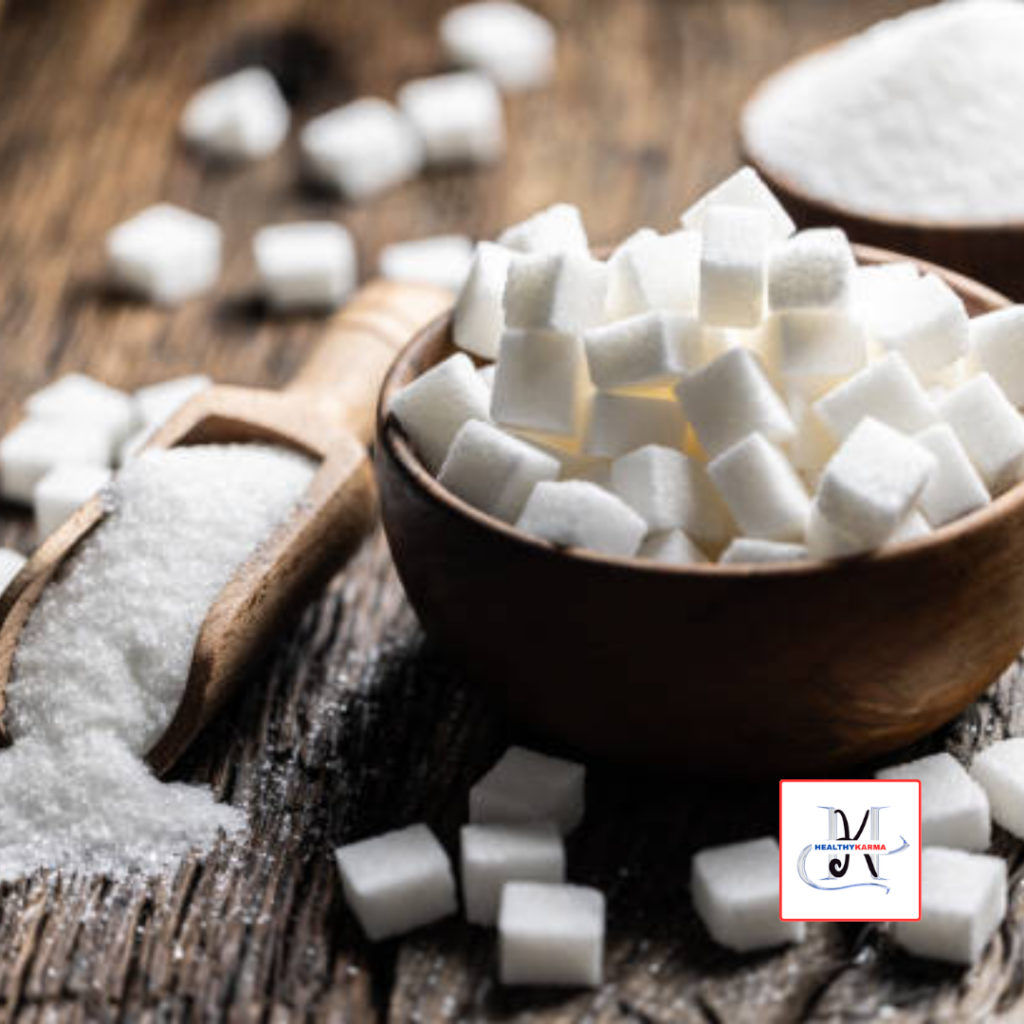
breaking FREE from weight loss plateaus
Weight loss is a constant challenge that is synonymous with a healthy lifestyle. It is tough to beat for a simple reason that the weight lost has a sly habit of coming back even after you have put in all the hours at the gym and spent hours starving your body. At the end of the day, your efforts come to naught, if you are caught off guard.
You are excited when you enroll for your latest fad diet plan or your latest gym plan. In the beginning you may be able to good results at first, without much effort. However, after some time things start tapering down or stop altogether. Just like a plateau that is formed between the hills or mountains. The most challenging part on any weight loss journey is successfully navigating weight loss plateaus.
We all as humans have this common tendency tend to take our bodies for granted and believe that the body’s systems are in place and that we do not need to put in the extra effforts to manage our health. That is the reason that we end up making unhealthy choices for the body.
However, the mind and the body are smart enough to realize this and at a point in time when they can no longer accept the abuse, they start reacting in the form of signs that it’s time for us to wake up. Gaining weight is one such sign where the body isd fe up of all the junk that is being injected into its systems and it reacts in the form of the reading on the scale.
If we are smart enough to pick up this signal, we immeadiately take the corrective course of action like changing our diet plan or setting up a new exercise plan. However, there is a catch here. The body and the mind are smart enough to realize this and to test our commitment start sending signals in the form of withdrawal symptoms.
Once we stop our diet or exercise plan, thinking that the results will come automatically, the body starts showing withdrawal symptoms and whatever efforts that we have put in come to naught.
Even though we may not realize this, subconsciously time and again we give a backdoor entry for the weight to come back on and make the weight challenge even more difficult, especially as the body ages due to the natural aging process.
It's Time To Revisit Your Habits
Lifestyle is basically built on a set of small things that we keep doing throughout the day that convert into habits over time. The current lifestyle and the lifestyle issues that we have are experiencing today are the result of these habits.
To close the backdoor and prevent the weight from coming back on, and even if some of it does come back, which eventually will, one needs to take revisit the current set of habits that govern the lifestyle, particularly the dietary habits.
GET THE PROTEIN LEVELS IN THE BODY CHECKED

Since our younger days, our brains have been fed with the information that protein is an essential macronutrient for our health and that we should have protein as part of our diet plan. But does our brain process that information in the right manner?
In order to understand the benefits of protein we need to understand our body’s thermal functions along with the nutrient requirements.
Protein has a higher thermic effect compared to carbohydrates or fats, meaning that the body burns more calories during digestion and metabolism from protein-rich foods.
Converting this simple piece of information into a lifestyle habit can contribute to better weight loss maintenance over time.
Therefore, it is always recommended that one should reduce the level of protein in the diet when the external temperature is higher.
Simply put, avoid protein and related items during lunch time. Schedule a regular high protein breakfast and a lighter lunch in the afternoon.
More so, if you’re residing in an area where there is scorching summer heat, make it a point to reduce the protein content in the meals and consume more water in order to keep the stomach cooler.
The next question that would arise would obviously be:
What is the ideal level of protein that I should have per day in my meals?
In order to understand the benefits of protein we need to understand our body’s thermal functions along with the nutrient requirements.
The daily protein intake varies from body to body and depends on various factors such as age, sex, activity level in the body, and overall health status, among others. The general guideline for protein consumption is between 0.8 to 1.0 grams of protein per kilogram of body weight, or 0.36 to 0.45 grams per pound.
Therefore, for a normal adult who weighs around 68 kilograms (150 pounds) would require approximately 54 to 68 grams of protein per day. This level is again different in the case of females and growing children. However, bodies of individuals with higher activity levels, such as athletes or sportsmen require higher protein levels to support their muscle repair and growth.
Having a basic knowledge about your body’s nutritional requirements in consultation with a healthcare professional or dietician goes a long way in combating the weight loss challenge effectively and get better results.
In conclusion, protein is an indispensable ally in combating the weight loss challenge, provided it is utilized effectively. By including diverse protein sources in our meals, we can ensure that we not only meet our body’s nutritional needs, but also keep the weight loss monster in check.
Sip Smart Stay Hydrated: Your Guide to Wellness
All through our young days, we have been taught that water is an in important resource and that our bodies are comprised of 70% of water. In practicality, how many of us are aware that our water intake impacts our weight loss levels in the long term?
The irony is that most of us lack the basic understanding about our body’s nutritional levels, and even if we do, the information is not presented correctly. Water per se, even though it has no taste, is a magic elixir that impacts all our bodies systems.
The body has an inbuilt mechanism where sometimes signals of hunger can be mistaken for thirst or vice versa. When we have a clear understanding about the body’s signals, we can reduce the likelihood of this confusion and avoid unnecessary calorie consumption by grabbing an unhealthy snack and subconsciously adding to the calories.
The relatively smaller calories add up to bigger calories during the day, particularly in the case of a sedentary lifestyle where there is less body movement and lower levels of metabolism. How many times do you rush for the nearest pack of your favourite cookies or chips when in reality you are feeling thirsty?
Drinking more water can boost your metabolism, by cooling down the body’s internal temperature. Studies show that drinking water temporarily increases the number of calories burned by the body. This effect, known as water-induced thermogenesis, contributes to weight loss over time.
Adding foods with high water content, to a diet plan, can contribute to automatic weight loss over time. Particularly during summers, eating water based foods contributes to managing weight loss plateaus effectively as there is loss of water along with other nutrients in the form of sweat during summer.
Water based foods tend to be lower in calories and high in fibre, causing the body to feel full. By including water-rich foods in the diet, one can reduce the overall calorie intake without much effort.
Try this simple experiment on your body and measure the results on the scale. Drink at least 2 glasses of water (around 250 ml) at least 10 minutes before every meal and 20 minutes after the meal. Your stomach will thank you for that once your body ages.
Carbs and Beyond: your journey to balanced nutrition
⇩ Discover Why Your Grandmother’s Plate Was Right

Carbohydrates, often referred to as carbs, are the biggest backstabbers that contribute to weight gain when consumed in the form of unhealthy choices, without our knowledge. Carbs by their nature, are a concentrated source of hidden calories.
Packaged foods rich in refined carbs along with other ingredients, such as sugary snacks, pastries, and sweetened beverages, tend to be high in calories but low in essential nutrients.
Consuming these calorie-dense foods even in small quantities, leads to an energy imbalance in the body, where the calories intake in the body exceeds the expenditure, resulting in weight gain.
Supermarkets are smart enough to realize this. What is the first thing that meets your eyes when you enter the supermarket? Shelves containing your favourite brand of chips or your soda, right? That is the first thing that goes into your shopping cart.
Have you ever wondered why are sugary snacks such as chocolates and the like arranged in aisles near the checkout counters in the supermarket?
The artificial ingredients present in the processed foods also trigger the release of insulin, a hormone that is responsible for causing diabetes.
With consistently high insulin levels in the body tends to store more fat, contributing to weight gain. Carb rich processed foods also trigger the release of serotonin, a type of neurotransmitter in the body that is associated with mood regulation.
Therefore, those experiencing stress, sadness, or other emotions tend to turn to these types of foods to calm their state of mind. This emotional trigger to eating can contribute to weight gain if it becomes a habit over a longer time. Making healthier food choices, being mindful of portion sizes, and incorporating whole, unprocessed carbohydrates in the dietary habits can help promote healthy weight and overall wellbeing of the body in the long term besides impacting the formation of weight loss plateaus.
How many times do you wake up in the morning feeling tired and do not feel like doing anything at all?
Studies show that sleeping habits play a crucial role in your weight loss efforts. Managing the quality and quantity of your sleep also supports your weight loss efforts. Sleep deprivation disrupts the hormonal levels of hormones that control that control appetite levels, such as ghrelin and leptin.
Lack of quality sleep leads to an increase in ghrelin levels and a decrease in leptin levels, resulting in increased hunger levels and cravings for food. How many times do you wake up in the middle of the night and attack the refrigerator looking for a quick bite? Ghrelin stimulates hunger levels in the body, while leptin indicates the fullness level in the stomach.
Quality sleep helps maintain the right hormonal balance in the body by regulating the hormones involved in metabolism. Lack of sleep can also alter insulin sensitivity levels in the body, leading to higher blood sugar levels and an increased risk of weight gain and developing conditions like diabetes.
When the body is sleep-deprived, you’re more likely to feel tired and lack energy, which can hamper your natural weight loss efforts and subconsciously help in the formation of weight loss plateaus. Therefore, it is important to maintain a consistent sleep schedule by going to bed and waking up at the same time every day, replace your bedtime coffee with milk which not only provides the much-needed level of protein to curb hunger levels in the middle of the night, but also calms you down.
Fibre Foundations: Building a Leaner Healthier You
Fibre is a type of carbohydrate found in plant-based foods that the body cannot directly. It plays a significant role in weight loss and maintaining a healthy weight. Fibre rich foods control the body’s hunger levels more effectively compared to non-fibrous foods.
The fibre-rich foods, absorb the excess water levels in the body, and expand the stomach, promoting a feeling of fullness in the body. This reduces the overall calorie intake by curbing hunger in the long term. Fibre-rich foods are generally low in calories but high in volume.
They add a higher bulk to your meals without significantly adding calories. This slows down the digestion process in the body, allowing more nutrients to be released gradually into the blood. This also helps in regulating blood sugar levels in the body more effectively.
Having fibre-rich foods at night tends to improve digestion levels and control constipation issues in the body. Additionally, good food habits can help control cravings and stabilize energy levels throughout the day.
Sweet Temptations Bitter Truth: Navigating Processed Sugar for Weight Loss

Despite all your efforts, is the scale stuck causing deeper and deeper plateaus or going out of control? It’s time to get your sugar levels checked.
Sugar is a concentrated source of calories and is low on nutritional values. Consuming high sugar levels leads to an increased calorie intake in the body.
The excess calories that are not burned as energy are stored as body fat, leading to an increase in weight. Consuming high levels of sugary foods automatically trigger food cravings and a desire for sweet and calorie-dense foods in the body.
These cravings are the biggest setbacks for managing of a healthy eating pattern. A high level of refined sugars in the body, cause a rapid increase in blood sugar levels.
In response, the body releases higher levels of insulin to regulate blood sugar. Frequent spikes in blood sugar levels and higher insulin levels leads to insulin resistance in the body.
Insulin resistance in turn contributes to weight gain and the development of conditions like obesity and type 2 diabetes.
Substituting foods containing refined sugars with items like fruits and dairy products that contain natural sugars and other essential nutrients like dietary fibre, can help mitigate their impact on weight gain.
The villain contributing to the formation of a weight loss plateau is not the sugar, as it is made out to be, but the processed, artificial sugar.
By being aware of your added sugar intake and making conscious choices to reduce consumption, you can contribute to a healthier diet and lower the risk of various health issues associated with excessive sugar consumption, such as obesity, diabetes, and cardiovascular disease.The American Heart Association (AHA) provides guidelines on the recommended daily intake of added sugar.
For men: No more than 9 teaspoons or 36 grams of added sugar per day.
For women: No more than 6 teaspoons or 25 grams of added sugar per day.
For children: The limits vary depending on age and caloric needs. The AHA recommends that children under the age of 2 avoid consuming foods and beverages with added sugars. For children aged 2-18, the limit is no more than 25 grams (6 teaspoons) of added sugar per day.
The Fitness Equation: Balancing Exercise and Weight Loss Efforts
You have a strict exercise regimen in place, yet it is not impacting the scale. Check whether you have included moderate cardio as a part of your exercise plan. Cardiovascular exercise, commonly known as cardio, elevates your heart rate, increases the level of oxygen consumption and provides other benefits for weight management.
Cardiac exercises are more effective in burning calories at a faster rate in the body. When you engage in cardio activities like running, brisk walking, etc your body requires higher energy levels to fuel the increased physical exertion on the body.
This energy comes from the calories in your body, including stored fat. Consistent moderate cardio exercises done daily help create a calorie deficit, where the body burns more calories than you consume, resulting in faster weight loss.
Regular cardio exercises enhance insulin sensitivity in the body, which is the body’s ability to effectively utilize insulin to regulate blood sugar levels. Proper insulin sensitivity in the body helps prevent excessive blood sugar spikes and reduces the risk of insulin resistance.
Studies suggest that regular levels of cardiovascular exercise in the body suppresses hunger hormones in the body, leading to better control over food intake and a healthy relationship with food. The American Heart Association’s health guidelines for a healthy lifestyle recommends at least 75 minutes of vigorous-intense cardio per week. However, different types of bodies require different levels of exercise.
Beyond the Plate: Transforming Your Relationship with Food for Weight Loss
Have you ever paid attention to your plate and the time that you take to eat? Eating too fast or gobbling down food can contribute to weight gain. When one eats too fast, the stomach is not able to send accurate signals to the brain mentioning that it is full.
As a result, you may end up overeating and consuming more calories than your body needs.
When your mind is not focused on the meal, there is a tendency to overeat as the other senses of how much you’ve eaten. This probably results in eating larger portion sizes and an increased overall calorie intake in the body.
Chewing food properly is an essential part of the digestion process in the body. Improper chewing leads to larger food particles entering the stomach, which puts stress on the digestive system making it harder for your digestive system to break down and absorb nutrients properly in the body.
Journey to Success: How Tracking your progress Propels Your Weight Loss Goals
You are what you eat. Not tracking your food intake or the type of food that you’re putting on the plate can have a significant impact on your weight loss efforts. When we eat without understanding the body’s requirements, it becomes very easy to underestimate the amount of food we consume.
Without being aware about the portion sizes and the nutritional requirements of the body, it becomes challenging to make informed decisions about the diet and develop a positive relationship with food.
Mindless eating leads to unhealthy eating habits where the mind turns to food as a resolve when the mind is under stress or boredom.
Overeating and Binge eating are the results of this process. These habits impact weight loss efforts without even realizing it. Watching the plate and the type of food intake helps understand the body and its nutritional requirements in a better manner.
Tracking food intake provides a sense of accountability for your dietary choices. It allows to identify areas where you may be consuming too many calories or lacking important nutrients. Without accountability, it becomes challenging to make positive adjustments to your lifestyle habits.
CONCLUSION
Managing an overall healthy lifestyle or weight loss as a lifestyle, is more dependent on a set of positive habits, and watching those habits is the key to success in managing a healthy lifestyle In real terms, the battle of the scale begins inside the mind, rather than the closed doors of the gym, no matter how hard one tries.
Disclosure:
This post may contain affiliate links which means if you click on a link and make a purchase, we may receive a small commission on our end at no additional cost to you. This helps us to continue providing value to our esteemed readers. Irrespective of the amount of commission, our goal is to recommend products or services that we genuinely believe will add value to our esteemed readers.

